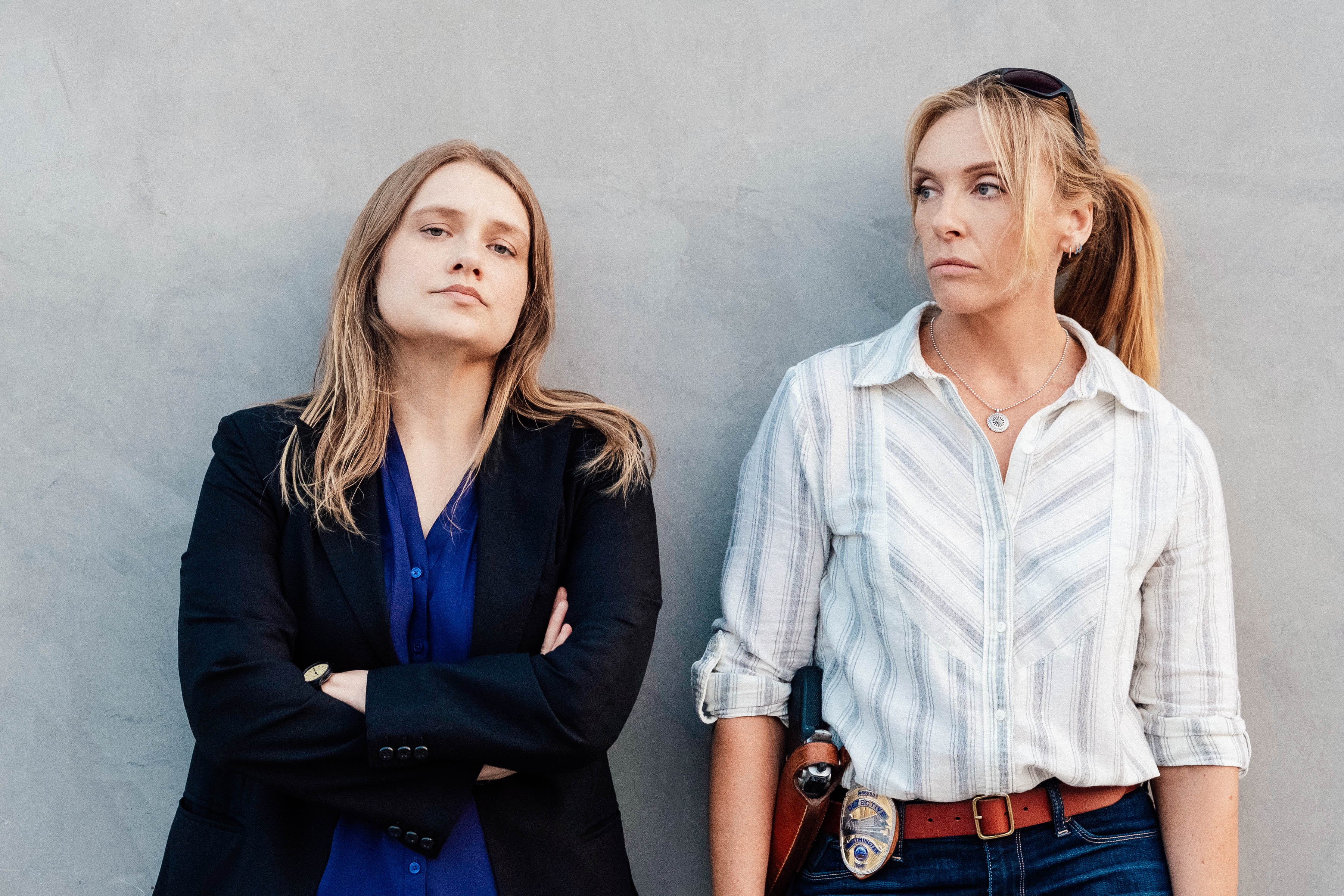Unbelievable, the exhaustively pedigreed new crime drama by novelists Michael Chabon and Ayelet Waldman and Erin Brockovich screenwriter Susannah Grant, begins with unusual determination and purpose. For 18 grueling yet instructive minutes, we follow 18-year-old Marie Adler (Kaitlyn Dever), a former foster kid living in transitional housing for at-risk youth in suburban Seattle, as she reports her rape to the police. She tells one officer about the stranger who broke into her apartment and threatened to kill her if she screamed, then another, then the nurse at the hospital who administers the rape kit. Marie is swabbed and photographed and even dyed, so medical staff can distinguish her healthy tissue from injured flesh. Her most recent foster mother, Judith (Elizabeth Marvel), arrives to provide cold comfort, but Marie is mostly alone with a jaded male detective (Eric Lange) who asks her to recount the assault a fourth and fifth time in seemingly as many hours, and who appears to be more immediately preoccupied with finding holes in her story. It’s an unflinching survey of the lost, cloudy, yet torment-filled hours after the 911 call—and only the most obvious instance of Unbelievable’s methodical exploration of the aftermath of violent sexual assault.
But the series, which is based on a real-life case (documented by This American Life, as well as ProPublica in collaboration with the Marshall Project), also hinges on two singular tales. The police quickly become convinced that Marie is lying about her rape, and so coerce her into a false confession that threatens her housing situation. Three years later, in 2011, a pair of female detectives from neighboring Colorado precincts, Karen Duvall (Merritt Wever) and Grace Rasmussen (Toni Collette), discover that they’re searching for the same serial rapist, one whose M.O. matches that of Marie’s attacker (though the older women won’t learn of the teenage victim until the end of their investigation). Detective Duvall first appears at the beginning of the second episode, arriving at the scene of another rape. The show devotes another long stretch—15 minutes—to college student Amber’s (Danielle Macdonald) post-assault interactions with officers and nurses. But Duvall’s tender demeanor and helpful explanations are worlds away from Marie’s isolating and eventually hostile experiences with the police. Duvall models genuine care for survivors, illustrating that it can be done even within a law enforcement context.
Chabon, Waldman, and Grant’s ambitions—to remake the procedural, to expand the discourse around sexual assault, and to spotlight how sexism within police departments can hinder rape investigations—are enthrallingly clear. It’s difficult to point to antecedents, though there is something of the innovating-within-a-trudging-bureaucracy quality of Mindhunter, the systematic analytical lens of Orange is the New Black, and the righteous rage at the ubiquity of misogynistic violence in the first season of Top of the Lake. But the creators’ efforts to reinvent and educate are also frequently undercut by a journalistic dryness—I lost count of the number of times that Wever and Collette spout statistics at each other about, say, the rate of domestic violence among male police officers. (It’s 40 percent.) Lisa Cholodenko’s direction of the first three episodes fails to endow the show with anything resembling visual flair (expect lots of grim grays), adding to the aura of well-meaning gracelessness. Unbelievable looks and sounds too often like a remake of Top of the Lake by Wikipedia.
Appropriate to its subject matter, the series is a difficult watch, partly because it gives the often long-reaching consequences of rape the seriousness it deserves, partly because the genre elements that generally leaven crime procedurals are kept at arm’s reach. (A rare depiction of reluctant mentorship between the two female detectives is dangled in front of the audience, but the payoff is delayed and not entirely satisfying.) The other victims Duvall and Rasmussen uncover—who vary in age, race, body size, and life situation—help elucidate the psychological, physical, but especially financial costs of rape. One survivor, played by Annaleigh Ashford, also demonstrates how police indifference can contribute to the making of an unsympathetic victim who, in turn, is less likely to receive care and attention from law enforcement. (In a characteristically ham-fisted line, a character encapsulates the show’s attitude toward the police as “a whole lot of human beings, all well-intentioned, but wildly capable of error.”) Marie, whose 2008 storyline is intercut with Duvall and Rasmussen’s ongoing investigation, arguably has it the worst: After she is pressured into saying that she lied, and then tries to recant her recantation, she goes into predictable but devastating freefall, rendering her already-precarious existence even more so.
Duvall and Rasmussen’s investigation itself is well-paced, and the writers endeavor to bring fresher elements to the police procedural, such as the role of the dark web in rape forensics and the post-CSI caution on the part of criminals about leaving behind evidence. Unsurprisingly excellent are the performances from the stacked cast, which also includes Dale Dickey as a motherly police officer helping out with the case. And in a true-crime ecosphere in which victims rarely get their say, Unbelievable is admirable for rearranging the genre to re-center survivors and spotlight the too-little-discussed repercussions of a too common crime.
But as thematically fascinating as Unbelievable can be, it’s also often dramatically plodding, if not grueling. The genre template calls for super-observant, super-dedicated sleuths, and we’ve certainly got those in Duvall and Rasmussen: superheroines who divine patterns in chaos while restoring the sense of outrage that these crimes deserve within their departments. But this tale of unusual decency and competence feels nearly as depressing as the criminal sadism they’re investigating. Duvall and Rasmussen are based on actual detectives, but the show’s universe is so bleak they don’t entirely feel a part of it—or of ours. Unbelievable so meticulously catalogs the endless multitudes, terrifying randomness, and near inevitability of darkness that it makes it hard to see the light.
